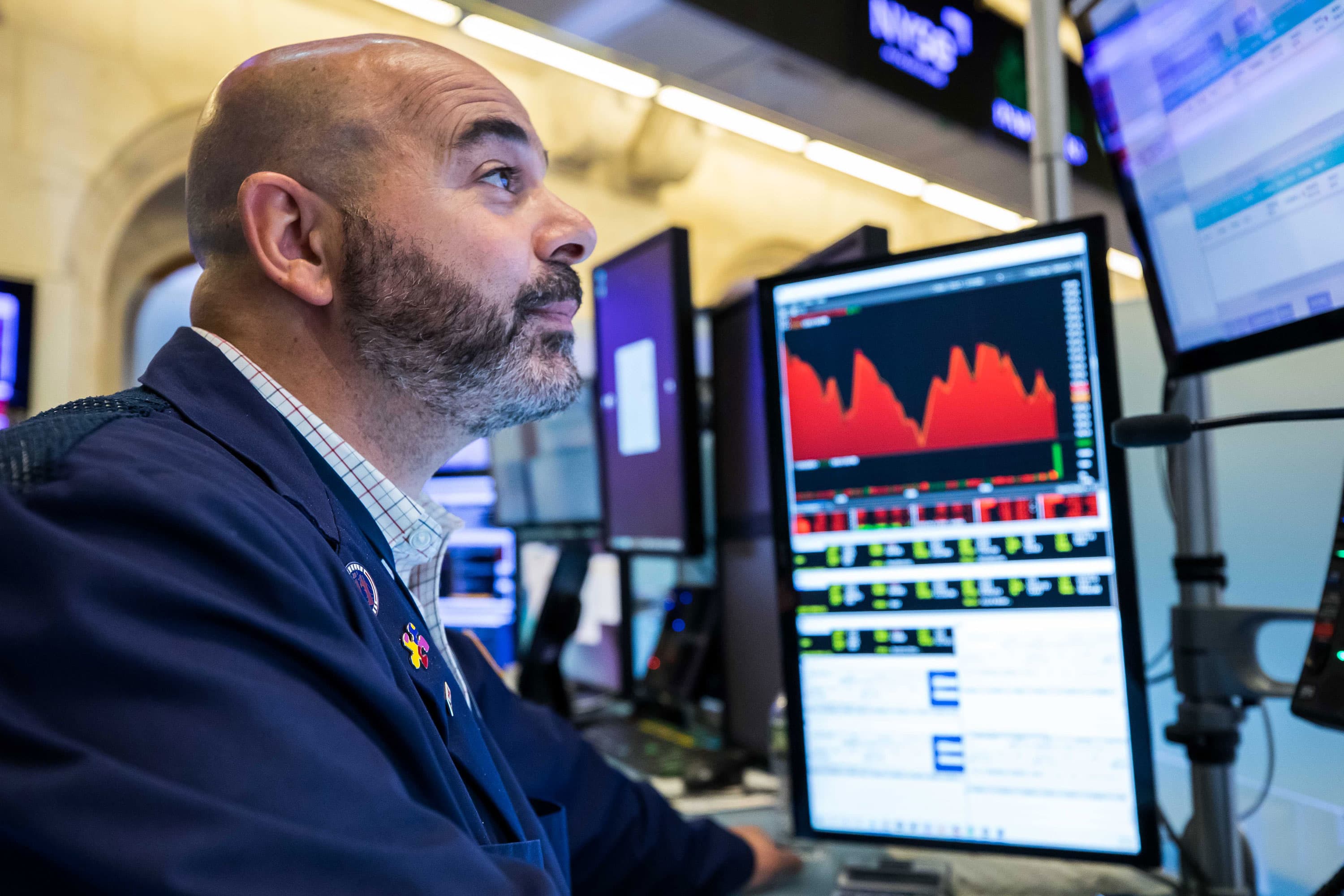
Stocks slipped on Friday as Wall Street attempted to find its footing after a brutal week of selling.
The Dow Jones Industrial Average dipped 10 points, or 0.03%, while the S&P 500 inched 0.16% higher and the Nasdaq Composite traded 1.2% higher.
The moves come as investors are increasingly worried about a potential economic slowdown. Several key pieces of economic data fell short of forecasts this week, ranging from May retail sales to housing starts. Additionally, the Federal Reserve raised its benchmark interest rate by the most since 1994.
Market volatility could be heightened Friday thanks to “quadruple witching.” This refers to the simultaneous expiration of stock index futures, single-stock futures, stock options and stock index options. This event happens once a quarter and typically leads to a surge in trading volume, making for choppy trading action as traders close out positions.
“Near-term recession has become a foregone conclusion for many investors; the only questions now are its duration and the severity of its impact on earnings,” said Chris Harvey, Wells Fargo Securities head of equity strategy said in a note Friday.
The S&P 500 is down 6% and could be headed for its worst weekly performance since March 2020. All 11 of its sectors are at least 15% below their recent highs.
Loading chart…
The Dow briefly bounced above the 30,000 mark after falling below that level on Thursday for the first time since January 2021. The 30-stock average is down 5% for the week, on track for its 11th negative week in 12. The tech-heavy Nasdaq Composite is down about 6% for the week.
Shares of Intel, Cisco and Salesforce jumped more than 1% on Friday, bringing the Dow slightly higher. All major sectors moved lower on Friday, with the exception of healthcare, which traded marginally higher.
Beaten-up tech shares staged a short rally on Friday, with shares of Tesla, Amazon and Netflix up 1%. Travel stocks Airbnb, Carnival and Norwegian Cruise Line added about 1% each.
Comments from the Federal Reserve Chairman Jerome Powell on Friday echoed the central bank’s commitment to tamping down inflation after hiking rates by 75 basis points earlier this week. The Fed is “acutely focused on returning inflation to our 2 percent objective,” he said.
The stock market’s weekly moves raised further questions as to when a recession will come if it hasn’t already hit.
“This week was brutal. … Let me tell you, we’re in a recession,” Wharton Business School professor Jeremy Siegel said Thursday on CNBC’s “Closing Bell: Overtime.” “It’s a mild recession. It’s not an official recession by the NBER, certainly not yet, but this first half is negative GDP growth, and it’s ending on a slide.”
UBS’ Mark Haefele said Friday that recession risks are rising, with a soft landing becoming “increasingly challenging.”
“Against this backdrop, we now see less upside for stocks this year, with slowing economic growth weighing on profit growth and higher bond yields depressing valuations,” he said.

